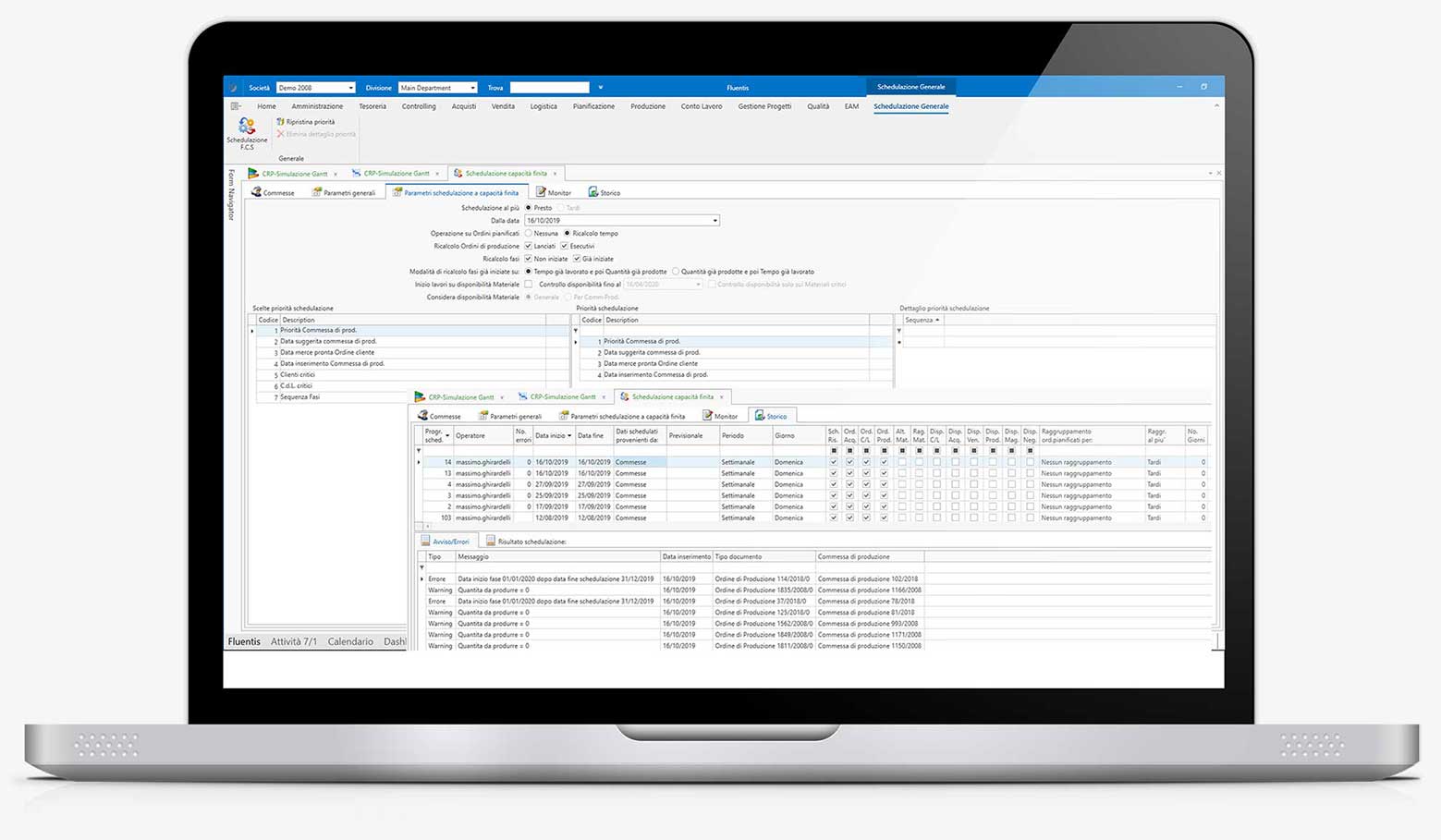Production scheduling for Industry 4.0
In recent years, the evolution of production-oriented and scheduling algorithms has spawned highly advanced solutions; solutions capable of proposing feasibility plans derived from even more complex algorithms. These solutions are increasingly accompanied by graphical interfaces (GUIs) designed for ease of use.
As mentioned earlier, finite capacity production scheduling is one of the most coveted goals for most planning managers. The desire to manage the work centers by leveling the relative loads, the possibility of eliminating any peaks or inefficiencies and having a non-interruptible but linear production organization are in fact the primary purpose of the algorithms at the base of the finite capacity scheduler.
It is important to specify that in all production companies the manufacturing process is characterized by multiple “constraints” which the algorithms must absolutely take into account in order to generate a truly effective and feasible production plan.
Manufacturing companies with the goal of working at finite capacity almost always aim to achieve the following objectives:
- Minimize the inventory of materials, as purchases should be organized in a “just in time” logic
- Shorten production times as much as possible
- Leveling and optimizing the load of the work centers
- Setting the appropriate priorities for production orders , in order to meet the delivery times agreed with the customer.





